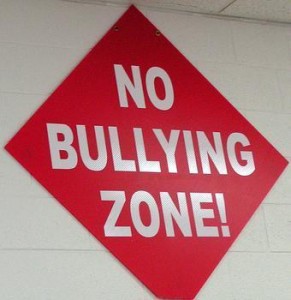By Rose O. Sherman, EdD, RN, NEA-BC, FAAN
It seems counterintuitive that nurses would bully each other in a time of critical staffing shortages, but it is a huge problem today. The reasons some nurses bully others include the following:
- Intense anger about their personal and professional experiences during COVID and an inability to stabilize these emotions.
- Strong disagreements about political issues such as mask mandates and vaccines.
- Frustration about wage compression versus what is paid to travel and agency nurses.
- Fatigue and failure to deal with issues of burnout.
- Negativity about serving as a preceptor for a revolving door of new nurses.
- A perception that given the shortages – frontline leaders will not call out the behavior.
The last reason is probably valid. Nurse leaders are themselves burned out and exhausted. They may feel that they don’t have the emotional bandwidth to deal with nurse bullies who become defensive and angry. The decision not to deal with bullying is itself a decision. What you walk by – you accept. This month’s Journal of Nursing Administration article discusses the very high price that organizations and units pay when a bullying culture is tolerated. The outcomes of bullying include but certainly are not limited to the following:
- Nurse disengagement on units where bullying occurs.
- Higher rates of burnout and exhaustion among staff.
- Staff turnover and decisions about intent to stay.
- Lower participation in shared governance activities.
- Higher risks of staff developing chronic illnesses.
- Staff choosing to socially isolate and disconnect from the team.
- An increased incidence of substance abuse.
- A decline in the critical thinking skills of nurses.
To rebuild nursing teams and create healthier work environments as we move into 2022, confronting bullying is both a logical and cost-effective first step. If you are facing this on your team, I recommend that you buy a copy of Dr. Renee Thompson’s book Enough. When bullying has been normalized into a unit culture, it takes leadership skills, tactics, and strategies to turn it around. Many of our current frontline leaders are new and will need help to do this. It seems simple but it is not easy to change the culture.
References
Meier, A, Evans, R. & Erickson, J.I. (2021) Strengthening a Culture to Address Bullying and Incivility in the Care Environment. JONA 51(10). 475-477.
Thompson, R. (2019). Enough! Eradicate bullying and incivility in healthcare: strategies for frontline leaders. Incredible Messages Press
© emergingrnleader.com 2021
Our Most Popular Right Now – Become the Boss No One Wants to Leave Nurse Retention in Turbulent Times
Give your leadership team the gift of a highly rated webinar – Nursing Leadership in 2021: Rebooting after a Life-Quake A Nursing Leadership Reboot Workshop.
Read the Nurse Leader Coach – Available at Amazon and Other Book Sellers.
Recommended Book by the Association of Critical Care Nurses and AONL – The Nuts and Bolts of Nursing Leadership: Your Toolkit for Success




 LinkedIn
LinkedIn Instagram
Instagram